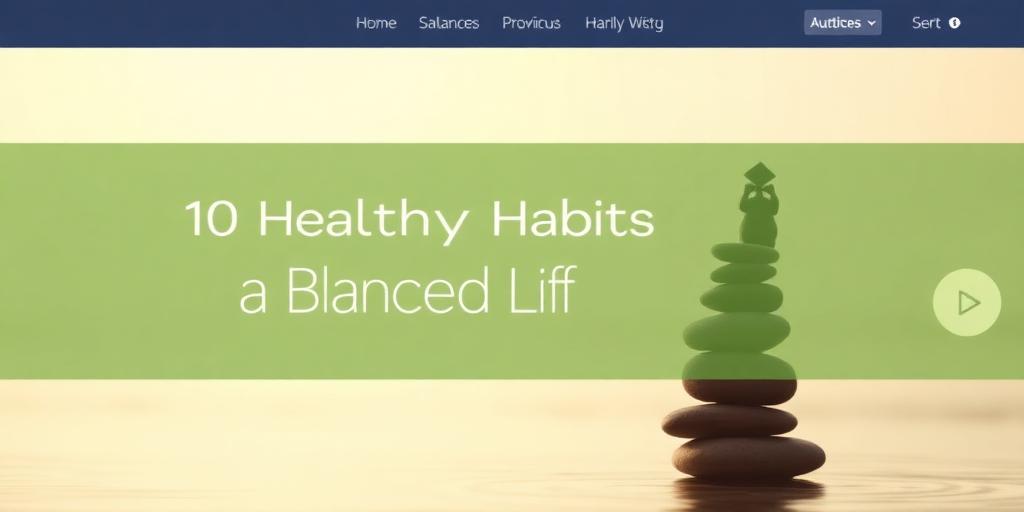Mastering Your Inner Compass: A Guide to Listening and Trusting Intuition
In a world saturated with information and external demands, the ability to tune into one's inner wisdom—intuition—remains a powerful yet often undervalued asset. Far from being a mystical concept, intuition is a sophisticated form of subconscious processing, a synthesis of past experiences, knowledge, and subtle cues that surfaces as a 'gut feeling' or sudden insight. Developing the capacity to both listen to your intuition and, crucially, to trust it, is a hallmark of confident decision-making and authentic living.
Understanding the Nature of Intuition
From an authoritative standpoint, intuition is not simply a random guess but a highly refined cognitive function. It represents your brain's rapid, unconscious pattern recognition capabilities. When you encounter a situation, your subconscious mind quickly sifts through vast amounts of data—from memories and learned behaviors to subtle environmental signals—to arrive at an immediate assessment. This often manifests as a strong inner knowing that bypasses linear logical analysis. Recognizing this scientific basis is the first step in appreciating its validity and learning how to listen to your gut feeling.
Strategies for Listening to Your Intuition
To effectively access this inner guidance, certain practices are essential:
- Cultivate Stillness: In our fast-paced lives, the constant mental chatter can drown out the subtle voice of intuition. Practices such as meditation, deep breathing exercises, or simply taking moments of quiet reflection can create the necessary space for these insights to emerge. Regularly engaging in mindfulness allows you to notice fleeting thoughts or sensations that are often intuitive signals.
- Recognize the Signals: Intuition rarely shouts; it whispers. It often presents as a quiet sense of knowing, a persistent hunch, or even a distinct physical sensation—a tightening in the stomach, a lightness in the chest, or a feeling of expansive calm. Differentiating these genuine intuitive nudges from fear-based anxieties or wishful thinking requires self-awareness and practice. True intuition often feels neutral, calm, and clear, while fear is typically accompanied by urgency and tension.
- Journaling and Reflection: Documenting instances where you felt an intuitive pull, what decision you made, and the subsequent outcome can be an invaluable tool. Over time, reviewing these entries will help you identify patterns, validate your intuitive hits, and strengthen your ability to discern genuine inner guidance. This systematic approach contributes significantly to developing intuition skills.
Building Trust in Your Inner Wisdom
Listening is one thing; acting upon that inner knowing requires trust. This trust is built incrementally:
- Start Small, Validate Often: Begin by applying your intuition to low-stakes decisions. For instance, choose a restaurant, a route to work, or a daily task based on a gut feeling. Observe the results without judgment. Successes, however minor, build a robust foundation of confidence. This practical application demonstrates the benefits of intuitive decision making.
- Acknowledge and Explore, Don't Over-Analyze: When an intuitive insight arises, acknowledge it. Rather than immediately dismissing it for logical dissection, allow yourself to explore its implications. Ask: “If this intuitive feeling were true, what would that mean?” This shifts your approach from doubt to investigation. Excessive analysis can often lead to overcoming self-doubt intuition.
- Embrace Discomfort and Uncertainty: Intuition often leads you down paths that logical reasoning might deem unconventional or risky. Trusting it means being willing to step outside your comfort zone and navigate uncertainty. This takes courage, but often leads to breakthrough outcomes.
- Address Self-Doubt: Self-doubt is a formidable barrier to trusting intuition. Understand that everyone experiences it. When doubt surfaces, remind yourself of past instances where your intuition served you well. Reframe mistakes not as failures of intuition, but as learning opportunities to refine your discernment.
Integrating Intuition into Daily Life
The true power of intuition lies in its integration into your daily life. Whether it's making significant career choices, navigating complex personal relationships, or simply choosing your next creative project, allowing your inner compass to guide you can lead to more aligned and fulfilling outcomes. It enhances problem-solving by offering creative solutions and streamlines decision-making by cutting through overthinking.
In conclusion, mastering your intuition is an ongoing process of self-awareness, practice, and trust. By systematically cultivating stillness, recognizing subtle signals, and incrementally building confidence in your inner wisdom, you unlock a profound source of guidance that empowers superior decision-making and enriches every aspect of your existence.









